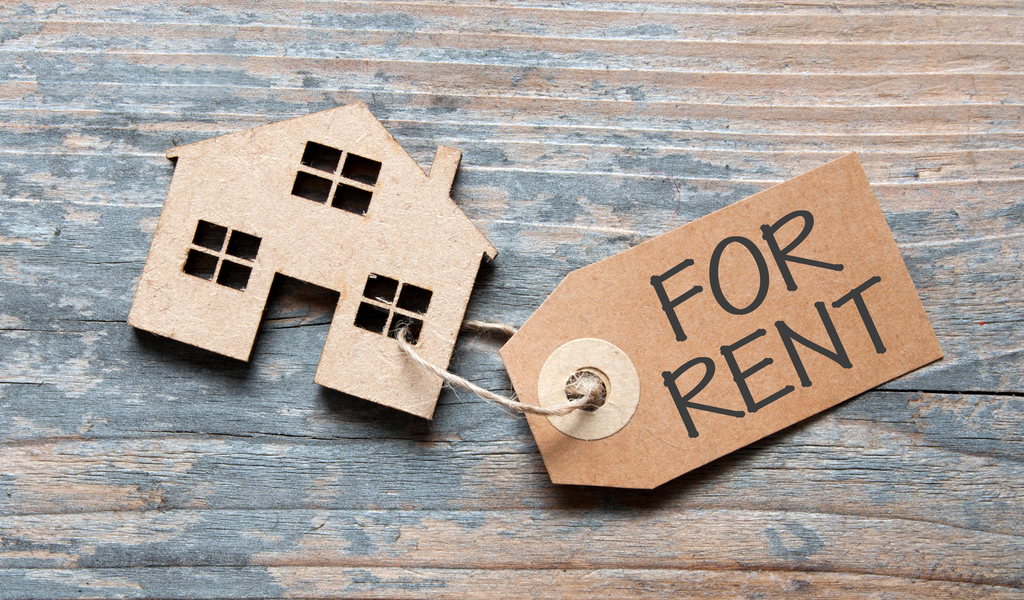Becoming a homeowner is on most people’s list of life goals, but that doesn’t mean you should buy one the first chance you get. While homeownership rates are currently at an all-time high in the US, historically, people were more likely to rent or build their own homes from scratch.
Of course, buying a house is a major life accomplishment and provides a lot of benefits in the long run. Namely, at the end of the long road of mortgage payments, you own a home! Renters, on the other hand, have nothing to show. However, it’s not all roses because there are a lot of hassles to deal with when it comes to buying and owning property.
Renting a house may not be the ideal scenario, but for a lot of people, it is the choice that makes sense for their financial situation. Even if you can afford to buy a house, other circumstances may make it more reasonable to rent at the moment, rather than buy.

Here are 10 reasons why you should rent a house even if you can afford to buy it.
Low Maintenance Costs
It would be naïve to assume that the only cost involved in becoming a homeowner is the price of the home itself. Like any other asset, a house will experience “wear and tear” over time. Any maintenance or repair costs that arise fall solely on the homeowner, and depending on the nature of the task, it can get quite pricey!
However, when you rent a house, the responsibility to handle all maintenance is on the landlord. So, if your roof is leaking or your fridge stops working, you call up your landlord and they are obligated to take care of the problem.
More Amenities
Adding amenities such as an in-ground pool or a fitness center will certainly take a lot of investment, not to mention maintenance if you want them in your own home. However, you can get free access to them by renting an apartment since almost all upscale and most midscale apartment complexes come with tons of amenities that you would otherwise have to pay for.
Even condo owners will have to pay to get access to these amenities as such expenses are bundled into their homeowners’ association (HOA) fees which need to be paid every single month.
Zero Real Estate Taxes
One of the biggest financial burdens that homeowners have to deal with every year is property taxes. While tax calculation varies based on your state and the value of the property, it can easily amount to thousands of dollars every year.
However, you can avoid the headache entirely by renting a house instead of buying it. Simply pay your rent and that’s it! Leave the job of dealing with real estate taxes with your landlord.
Down Payment Not Required
One of the major reasons that people choose not to buy a house is that they cannot afford to make the down payment, even if they can afford to make the monthly payments. As a renter, you would be required to make a security deposit of one or two months. Hypothetically, even this is returned when you vacate, given that there has been no damage to the rental property.
However, a prospective homeowner is required to pay somewhere around 20% of the property’s value as a down payment. Even then, they do not own the home entirely. Think of a house like a company whose shares you own. Similarly, having paid a 20% down payment equates to you owning 20% equity in the house. This percentage increases as you continue to make mortgage payments, only giving you full ownership of the property once everything is paid off. This may seem like a good deal, but if you fail to make payments down the line, you risk losing it all. The upside though is that, unlike renters, at the end of it, you own the house. But, keep in mind that not everyone has the choice.
More Job Opportunities
As the nature of the job market changes, so does the habits of homeowners versus renters. People no longer expect to stay at the same job until they retire, and this means that they may have to move several times in their lives. Buying a home does not make sense if you expect to move around frequently. Parallelly, becoming a homeowner could even limit your opportunities because you may not explore options that aren’t close by.
Renting also allows you to live in places where you would not be able to buy a house. To use the example above, New York City would be inaccessible to most people if they had to become homeowners just to live there. But they can comfortably rent while taking advantage of all that a city like that has to offer.

No Worries About Decreasing Property Value
Property values are constantly fluctuating, and this can make a major impact on homeowners, such as the price of your mortgage and the amount of real estate taxes you need to pay. However, renters are relatively unaffected due to the rocking of the housing market. The only thing that may be affected is the price of their rent, but the beauty of renting is that they are always able to look around and find something else at any time!
Flexibility to Move
Most people buy houses with the dreams of living there their entire lives, but the circumstances of your life will not remain the same forever as they do now. For instance, retirees who face an empty home after their children have moved out may prefer to move to a smaller, living space. On the other hand, a growing family may require more space!
Renters are able to easily move around to accommodate changes in their lifestyles. Technically, homeowners can also sell their houses and buy another, it’s not as simple as ending a rental agreement. There are lots of hoops to jump through when selling a house. Plus, you may end up selling for way less than what you paid initially or if you had expensive renovations done.
Rent is Fixed
As a renter, you are able to create an accurate monthly budget because you know exactly how much you need to pay every month. While landlords can raise the rent as they wish, they are required to give you notice. You can use this time to find another place that fits more into the budget or increase your rental budget going forward.
As for homeowners with fixed-rate mortgages, this is the same. However, those with adjustable-rate mortgages (ARMs) may be faced with fluctuations in their payments due to rising interest rates. Property taxes are another thing that homeowners need to worry about as they could rise at any time.
Renter’s Insurance Costs Less
Buying a house requires you to also maintain a homeowner’s policy insurance. Renters, on the other hand, are not required by law to have any. However, if they choose to do so, they can get renter’s insurance for a lot cheaper. For comparison, the average homeowner’s insurance policy costs around $1250 a year whereas the average renter’s insurance policy only costs around $180 a year. Plus, renter’s insurance covers nearly everything from furniture and appliances to electronic devices and valuables.
Lower Utility Costs
Rental properties are typically smaller in size when compared to homes, although both come in varying sizes. However, homeowners are more likely to face larger utility bills such as water and electricity. Rental properties are typically built more efficiently, which makes them more affordable to heat and power than most houses.



